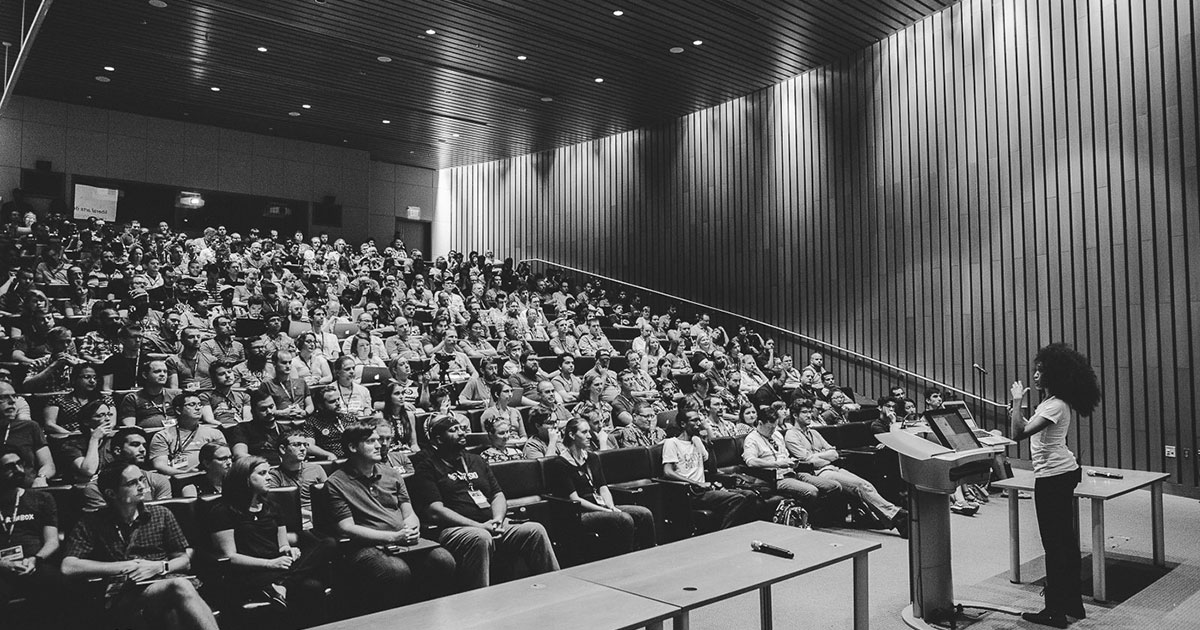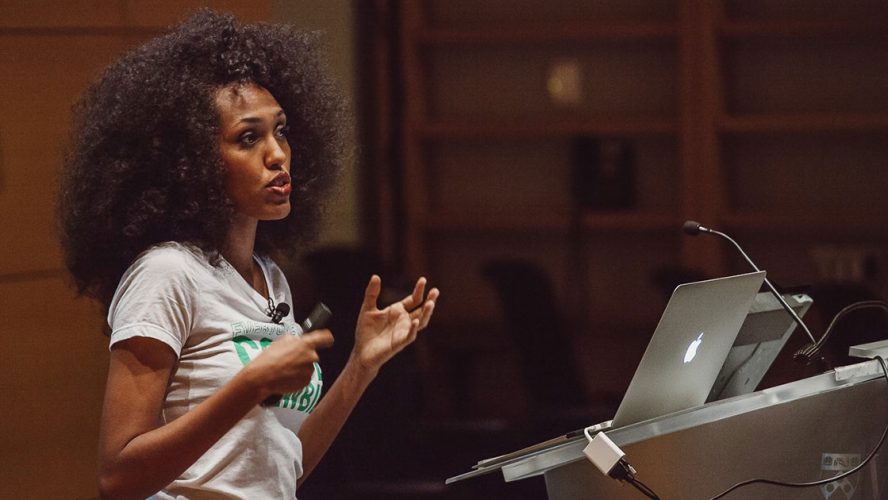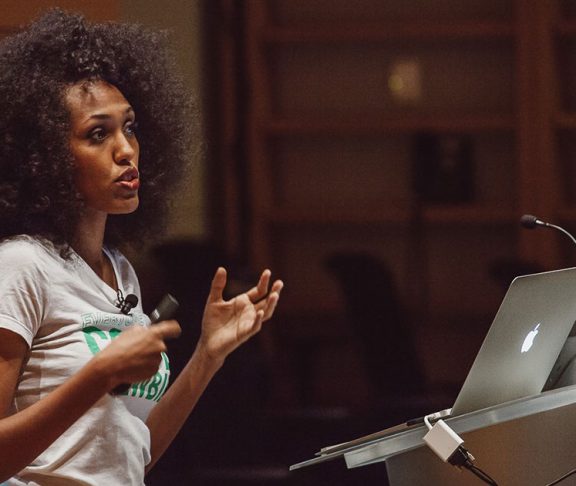Saron Yitbarek, a self-taught coder from a decidedly non-techie background, never imagined the success she would eventually achieve when she first launched her coding podcast, CodeNewbie. Today, the show has over 1.4 million downloads and has fans tuning in from more than 100 countries to learn how they, too, can break into the world of coding.
Journey to code
Yitbarek’s own coding journey began while she was working a dull job as a fact-checker at a magazine. In order to fill her down time she began reading books, and stumbled upon a Steve Jobs biography. “When I saw that there was this other side of tech that isn’t so calculated, that can be creative and be flexible and be emotional, I thought, ‘Oh, that’s interesting,’” she says.
Soon, she was devouring everything she could find on coding — reading about various startups, following tech blogs, and listening to podcasts. She made a list of startups she was interested in, and set about cold-emailing the CEOs. One of those emails eventually led to her first job. The position turned out to be in sales, but Yitbarek was fascinated by the engineering team and couldn’t help sneaking a look over their shoulders as her curiosity grew.
Failure is an option
Eager to learn how coding worked, Yitbarek signed up for an online coding course, but it didn’t go well. She found the experience highly frustrating and felt like a failure. But then she realized that when learning to code, “failure is not the exception, it’s the backdrop.” She had to change her mindset, change her expectations, and be willing to fail.
A year later, with a new mindset, she began researching boot camps such as Codecademy and Treehouse. She liked the immersive, hands-on approach of the boot camps, and suddenly, it all seemed much more doable.
When choosing between a boot camp and a traditional four-year degree, Yitbarek recommends researching the options that are available and affordable, while making sure to consider the mindset of the companies you are interested in. Startups and smaller companies may be more open-minded to the non-traditional path, but things are changing, and some larger corporations are now beginning to hire directly from boot camps.

That said, Yitbarek does warn against boot camps that claim to turn you into a rock star in six weeks. “If you believe all that marketing and that headline without digging deeper, without being realistic, I think you’re going to be really disappointed,” she says.
Mindful creation
Diversity and inclusion in the tech space and startup culture are also very important to Yitbarek. Though many companies, organizations, and schools are creating initiatives to attract people who are underrepresented in technology spheres, she believes it is up to all of us to continue to question and challenge our own blind spots and be mindful of all that we do and create.
After all, it’s a great big world out there, and Saron Yitbarek believes that anything is possible. Especially when you know what’s going on under the hood.

